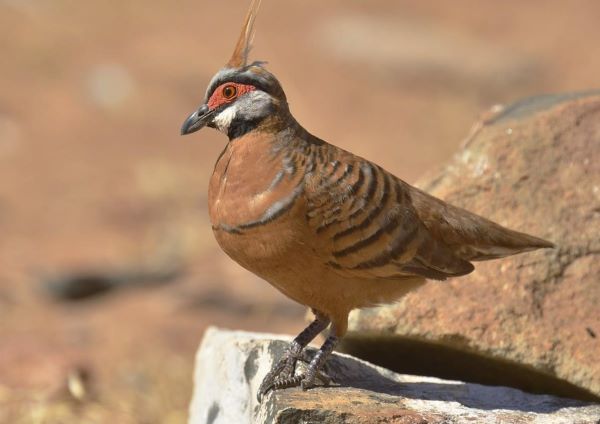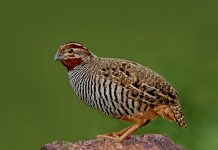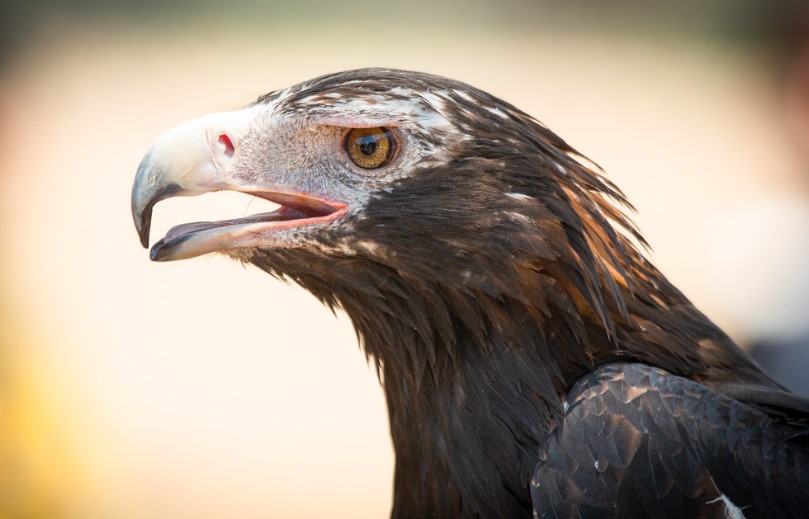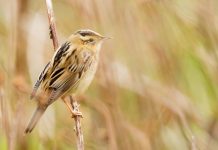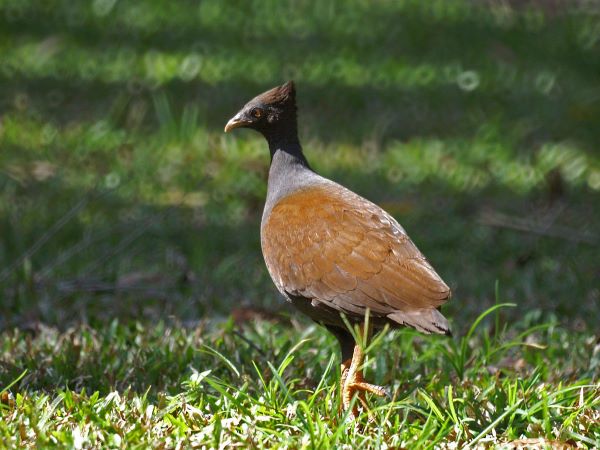IDENTIFICATION – Mongolian Finch (Bucanetes mongolicus) is a small passerine bird about 12-13 cm in length, in the finch family Fringillidae. This finch is a small, dumpy, fairly stout-billed finch of extreme Eastern Turkey and adjacent Armenia. The adult male is mainly brown on the head, mantle, and upper tail coverts, but has lovely rose-pink suffusion on the rump, supercilium, and from lower face to flanks.
The wings and tail are blackish with prominent pinkish-white feather edgings. Bill is horn-colored. Easily separated from Desert Finch by pink coloration on head and underparts, and (compared with adult male Desert) horn rather than blackish bill and absence of black on lores.
Told from an adult male Trumpeter Finch by a largely brown rather than largely gray head, horn rather than a red bill, lack of any pink on the browner mantle, more restricted rose-pink on underparts, and much more ‘black-and-white’ wings and tail. Could be confused with an adult Crimson-winged Finch in poor view, but is noticeably smaller with pink rather than brown breast and flanks, and lacks a blackish crown.
Also, the adult female finch is generally alike to the male but has pale gray-brown with much fainter rose-pink suffusion much duller and more restricted on the rump, supercilium, and underparts. Furthermore, the pink color is often restricted to the throat and flanks, with the rump appearing whitish-buff.
At any distance, habitually appears to lack pink tinge except in wings and tail, breast and flanks being washed with buff. The young finch bird is still drabber, lacking any pink tones and with much more restricted pale areas in wings (in particular, lacks the striking whitish edges to greater coverts and instead shows two warm buff wing bars formed by tips to the median and greater coverts).
Both older females and juveniles present more identification difficulties. Most likely confusion is with female or juvenile Trumpeter. Adult female Mongolian are quite easily separated by much more ‘black-and-white’ wings and tails, but the difference is less marked in juvenile or 1st-year. The latter is best told by their smaller, horn-colored bills, double buff wing bars, more obvious dark streaking on crown and mantle, and more extensive white on outer tail feathers.
Juvenile Crimson-winged is larger and bulkier, with more two-tone underparts (mottled with brown on breast and flanks, contrasting with a white belly and undertail coverts) and a darker crown (although this is not nearly as contrasting as in adults/1st-years).
Juvenile Desert has a more deeply-cleft tail, is paler and un-streaked on the mantle (sandy gray-buff rather than brown), and has darker (blackish) centers to the flight feathers; often shows rather a two-tone bill with a yellowish base and dark tip. Typically found in pairs or small groups, feeding unobtrusively on the ground. Moreover, the first-years resemble the adult female but keep most juvenile wing feathering.
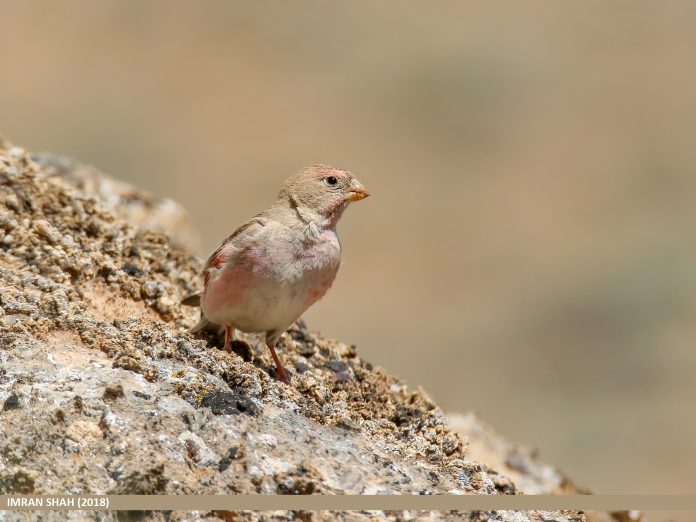
Related Reading – 30 Most Beautiful Finches in Asia
VOICE
Call – Mongolian Finch is rather silent outside breeding season. Every so typically gives a slightly nasal “deedjud” or a clear, downhearted ‘piu’; in-flight infrequently gives a short, twittering rattle.
Song – Mongolian Finch has two distinct song types, one consisting of a musical series of rather Common Rosefinch-like whistles, the other a more complex series of chirping notes with a sonorous growling rattle at or near the end.
HABITAT – Mongolian Trumpeter Finch is very uncommon and much localized. Their habitat is broken arid or semi-arid mountain country, favoring crags, ravines, and rocky and grassy slopes with herbaceous plants (and sometimes a few low bushes). The finch descends lower in winter, visiting cultivation in nearby valleys and plains.
OTHER NAMES – This is also known as Mongolian Trumpeter Finch.
DISTRIBUTION – Mongolian Finch is found in Central Asia, Western China, and Mongolia. This finch is a resident of Turkey, China, Mongolia, Afghanistan, Pakistan, Iran, India, Nepal, Uzbekistan, Armenia, Kazakhstan, Azerbaijan, Kyrgyzstan, Russia, Bahrain, Kashmir, and Tajikistan.


